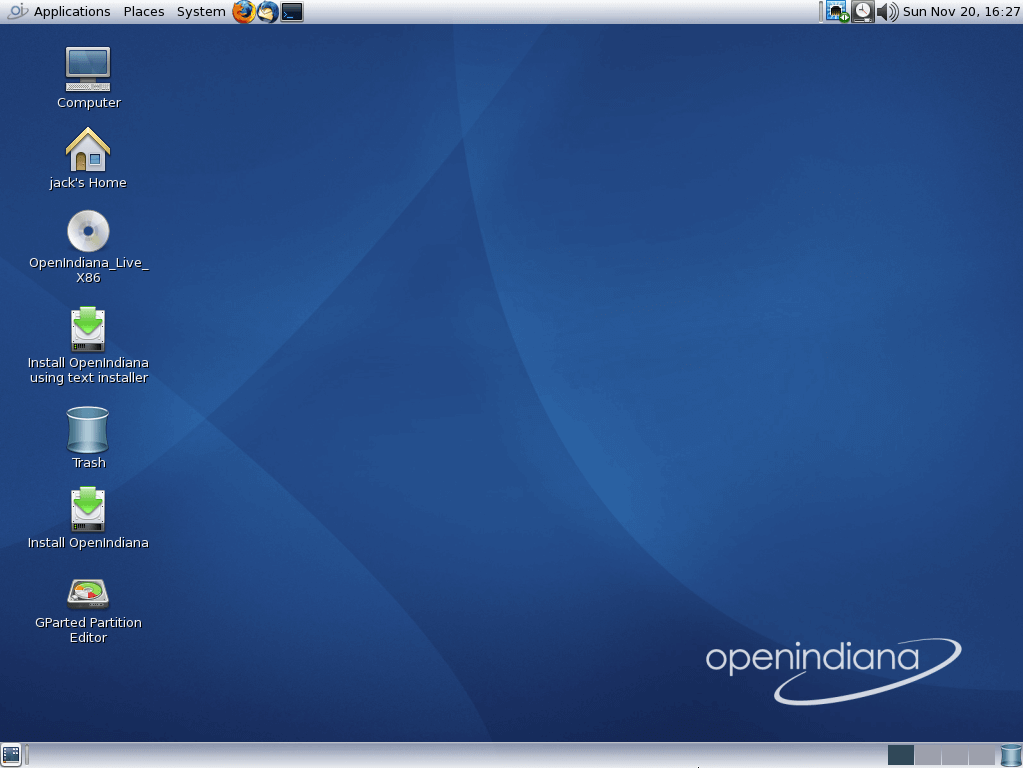OpenIndiana is a free and open-source illumos distribution compatible with SPARC and x86-64 based computers. The project began in 2010, forked from OpenSolaris after OpenSolaris was discontinued by Oracle Corporation.
OpenIndiana is a distribution developed and maintained by a community of volunteers.
From the CLI, it supports a number of different shells, the two main ones being ksh93 and Bash. It also supports the original SunOS SVR4 commands, Like the command and syntax familiar to BSD users, and a large portion of the GNU userland commands that most Linux users are familiar with. You can select any or all of those different commands from your shell configuration, giving you the environment you are most happy with.
By default, the windowing GUI system is based on the popular MATE system. OpenIndiana supports a wide range of popular software, including the main open source Internet server software, databases, Internet client software, development languages and tools and more.
OpenIndiana also has a powerful package manager, IPS, for updating and installing new software.
OpenIndiana obtains its name from Project Indiana, an open source effort by Sun Microsystems (now Oracle Corporation) to produce OpenSolaris, a community developed Unix-like distribution based on Sun Solaris. Project Indiana was led by Ian Murdock, founder of the Debian Linux Distribution.
Some of the differences between OpenIndiana and OpenSolaris can be characterized as follows:
- Sun’s OS/NET consolidation (closed by Oracle) has been replaced with illumos-gate.
- Many of the original OpenSolaris software consolidations have been reorganized into a single oi-userland consolidation.
- Oracle’s Sun Studio has been replaced with the open source GNU GCC compiler.
- XVM (XEN) has been replaced with the illumos-kvm port.

| Working state: | Active |
| Desktop: | MATE |
| Init Software: | |
| Package Management: | PKG |
| Release Model: | Fixed |
| Platforms: | x86_64, SPARC |
| Home Page: | openindiana.org |
| Developer: | OpenIndiana Maintainers |
| This article is part of our Big List of Active Linux Distributions. |
What's a Linux distribution ("distro")? |
| A distro provides the user with a desktop environment, preloaded applications, and ways to update and maintain the system. Each distro makes different choices, deciding which open source projects to install and provides custom written programs. They can have different philosophies. Some distros are intended for desktop computers, some for servers without a graphical interface, and others for special uses. Because Linux is an open source operating system, combinations of software vary between Linux distros. |

